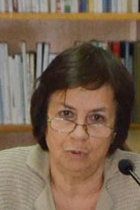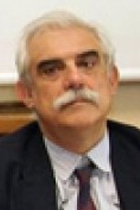

Course Outline
The Institute of Historical Research of the National Hellenic Research Foundation, one of the most renowned institutions for the study of Greek History (Ancient, Byzantine and Modern) at international level, is pleased to announce the organization of the Summer School entitled “Εxploring Business History in the Mediterranean, from Local to Global” in the Aegean island of Syros.
The one-week intensive Summer School aims to provide participants with in depth knowledge of the history of enterprises throughout the Mediterranean, the way local history and economy has influenced the global, as well as the emerging connections and relationships between local and global economy and businesses. By comparatively studying examples from modern times to nowadays, participants will acquire an in-depth historical knowledge of various aspects of entrepreneurship in the Mediterranean area. This summer school in Syros offers a unique experience of studying in situ several issues regarding the ways in which a small insular community managed to accumulate capital and develop entrepreneurial know-how, and thus link to the global economy.
A unique feature of this Summer School is that participants will be given the opportunity to learn and experience the industrial and commercial heritage of Hermoupoli by visiting several monuments and sites in the island, namely the Industrial Museum of Syros, the Neorion of Syros, one of the oldest shipyards in Greece, the old industries in the island, the Orphanage, the quarantine hospital, and the exceptional neoclassic mansions.
The Summer School will be held from 26 to 30 June 2017. The instructors are affiliated with the Institute of Historical Research, the École des Hautes études en Sciences Sociales (Paris), York University (Toronto), University of Thessaly (Volos), National Technical University of Athens and have extensive experience in the study of Social and Economic History, History of Enterprises and Technology.
The lectures will take place at the General State Archives as well as in the Industrial Museum in Hermoupolis, capital of the island of Syros.
The courses will be taught in English and will be offered to a limited number of applicants who will be selected by the Scientific Committee.
The school is open to undergraduate and postgraduate students, PhD candidates in the field of Social Sciences and Humanities as well as to those interested in particular on Business History, Industrial Archeology and Social and Economic History of the Mediterranean.
All participants will receive a Certificate of Participation.
Sponsor

Programme
Monday, June 26
MORNING SESSION |
|
10.00 - 10.45 |
Doing business in eastern Mediterranean: trade, risk and environment (Maria Christina Chatziioannou) |
10.45 - 11.30 |
Doing business in eastern Mediterranean: trade, risk and environment (Maria Christina Chatziioannou) |
11.30 - 12.15 |
Business History & its agenda (Patrick Fridenson) |
12.15 - 13.00 |
Business History & its agenda (Patrick Fridenson) |
13.00 - 14.00 |
Light Lunch |
EVENING SESSION |
|
17.00 - 17.45 |
The French capitalism (Patrick Fridenson) |
17.45 – 18.30 |
The French capitalism (Patrick Fridenson) |
Tuesday, June 27
MORNING SESSION |
Museum Industrial Heritage |
10.00 - 10.45 |
Entrepreneurship in a new port-city: Merchants, bankers and manufacturers in Hermoupolis, 19th c. (Christina Agriantoni) |
10.45 - 11.30 |
Entrepreneurship in a new port-city: Merchants, bankers and manufacturers in Hermoupolis, 19th c. (Christina Agriantoni) |
11.30 - 12.15 |
Visit at the museum |
12.15 - 13.00 |
Light Lunch |
EVENING SESSION |
|
17.00 – 19.00 |
A peripatetic visit to the buildings of a port city |
Wednesday, June 28
MORNING SESSION |
|
10.00 - 10.45 |
What is Global History & Why Does it Matter (Sakis Gekas) |
10.45 - 11.30 |
What is Global History & Why Does it Matter (Sakis Gekas) |
11.30 - 12.15 |
The Great Divergence & The Making of a Global Commodity (Sakis Gekas) |
12.15 - 13.00 |
The Great Divergence & The Making of a Global Commodity(Sakis Gekas) |
13.00 - 14.00 |
Light Lunch |
EVENING SESSION |
|
17.00 - 17.45 |
Τhe Greek State as a new area for Entrepreneurial Activities (Maria Christina Chatziioannou) |
17.45 – 18.30
|
Industrial development in Greece: from local to global, 19th-20th c. (Christina Agriantoni) |
Thursday, June 29
MORNING SESSION |
|
09.30 - 10.15 |
Industrial entreprises in Hermoupolis (Christina Agriantoni) |
10.15 - 11.00 |
Industrial entreprises in Hermoupolis (Christina Agriantoni) |
11.00 - 11.45 |
Cotton Industry in the Mediterranean (Christina Agriantoni) |
11.45 - 12.30 |
Silk and Entreprises (Maria Christina Chatziioannou) |
12.30 - 13.15 |
Silk and Entreprises (Maria Christina Chatziioannou) |
13.15 - 14.00 |
Bourgeoisie and Urban Life in Eastern Mediterranean (Maria Christina Chatziioannou) |
14.00 – 15.00 |
Light Lunch |
Friday, June 30
MORNING SESSION |
|
09.30 - 10.15 |
Technological transfers in the Mediterranean - The Historical perspective (Christina Agriantoni) |
10.15 - 11.00 |
Technological transfers in the Mediterranean - The Technology and Innovation imperative in Business History (Yannis Caloghirou) |
11.00 - 11.45 |
The Technology and Innovation imperative in Business History (Yannis Caloghirou) |
12.00-14.00 |
Visit to the Neorion shipyards |
14.00 – 15.00 |
Light Lunch |
15.00 – 17.00 |
Closing remarks |
Sponsor

Application Procedure
The school is open to undergraduate and postgraduate students, PhD candidates in the field of Social Sciences and Humanities as well as to those interested in particular on Business History, Industrial Archaeology and Social and Economic History of the Mediterranean.
The course will be offered to a limited number of applicants who will be selected by the Scientific Committee following a thorough assessment of the application and the CV of the applicants.
The final deadline for applying is: 25 April 2017 (00.00 EET)
Candidates are invited to submit the online application form.
Applicants will be informed of the selection results by e-mail not later than 28 April 2017. Along with the confirmation, they will also receive further information to complete the registration process.
Sponsor

Instructors

Maria Christina Chatziioannou
Maria Christina Chatziioannou obtained her PhD in Modern History from the National and Kapodistrian University of Athens (Department of History and Archaeology). She has also studied Italian history at the Scuola di Perfezionamento di Storia Medioevale e Moderna, Universita di Sapienza, Rome. She is Research Director (Business History and Industrial Archaeology (17th-20th c.) at the Institute for Historical Research/ National Hellenic Research Foundation. She has taught graduate and undergraduate courses and seminars at the Universities of Athens, Crete and the EHESS. She is currently president of the Greek Economic History Association (2010-16). She has published (11 books as author and editor and numerous articles) on merchant houses and entrepreneurs, commercial networks, retailing, evolution of Greek settlements, Italian historiography. She is currently engaged in a comparative study of merchants and business enterprises in the Mediterranean, Anglo-Greek trade and ethnic and economic networking in Britain.
Full CV
http://www.eie.gr/nhrf/institutes/inr/cvs/cv-chatziioannou-en.pdf

Christina Agriantoni
Christina Agriantoni is historian, Professor Emeritus of the University of Thessaly. She has studied Architecture at the National Technical University of Athens and History at the EHESS and the Université de Paris X-Nanterre (PhD), in Paris. She has worked at the Institute of Neohellenic Research, National Hellenic Research Foundation, and the Department of History, Archaeology and Social Anthropology at the University of Thessaly. Her research interests and publications cover the fields of Economic and Social History, Industrial History, Urban History and Industrial Archaeology.
Full CV
http://www.ha.uth.gr/index.php?page=faculty.display&a=agriant

Sakis Gekas
Sakis Gekas is an Associate Professor and the Hellenic Heritage Foundation Chair of Modern Greek History at York University. Sakis has taught economic history and global history at the London School of Economics, European University Institute and University of Manchester. He joined York University in 2010 teaching Modern Greek history, history of colonialism in the Mediterranean and history of Greek migration and diaspora. He has published Xenocracy. State, Class and Colonialism in the Ionian Islands, 1815-1864 (Berghahn 2017) and other works on the Ionian Islands under British rule, on merchants and ports in the Mediterranean and the economic history of nineteenth-century Greece.
Full CV
http://people.laps.yorku.ca/people.nsf/researcherprofile?readform&shortname=agekas

Patrick Fridenson
Patrick Fridenson is Alumnus of the Ecole Normale Supérieure. He obtained his PhD in economic history at University of Paris VIII (1971) and he was fellow of St. Antony's College, Oxford (1977).
He previously taught at the University Paris X-Nanterre, and has been Visiting Professor at the University of Tokyo (Faculty of Economics), at the University of California, Berkeley, at Duke University, at Stanford University, at University of Virginia, and Harvard (HBS).
He is Professor of International Business History at the Ecole des Hautes Etudes en Sciences Sociales (EHESS), Paris, France, since December 1985. Since September 2012 he has become emeritus professor. He has been the editor of the French journal of social history Le Mouvement Social. He is the co-founder and the editor of the quarterly journal Entreprises et Histoire.
He is one of the pioneers of business history in France. His research deals with the strategies, structures, innovations and performances of business enterprises in relation to consumers and to the regulatory and social environment in international perspective (comparisons between France, Germany, the US and Japan, and international circulations). He has worked in several industries : automobile, aircraft, coal, electronics. In keeping with his focus, he has kept connecting business history, social history and history of the State.
He is the author, co-author or editor of several books. Those in English are The Automobile Revolution (Chapel Hill, University of North Carolina Press, 1982, and now available on Internet), The French Home Front, 1914-1918 (Oxford, Berg, 1992), Thomson’s First Century (Jouy-en-Josas, Campus Thomson, 1995), (co-edited with Tsunehiko Yui) Beyond mass distribution. Distribution, market and consumers. Proceedings of two Japanese-French business history conferences (Tokyo, Japan Business History Institute, 2012), (co-authored with Philip Scranton) Reimagining Business History (Baltimore, Johns Hopkins University Press, 2013, (with Takeo Kikkawa) Pioneering Ethical Capitalism: The Economic and Moral Ideology of Shibusawa Eiichi in Global Perspective (to appear at University of Toronto Press in March 2017).
His first book in French was Histoire des usines Renault, vol. I: 1898-1939 (2nd ed., Paris, Le Seuil, 1998).
Full CV
http://crh.ehess.fr/document.php?id=341

Yannis Caloghirou
Yannis Caloghirou is Professor of Economics of Technology and Industrial Strategy at the National Technical University of Athens (NTUA) and Director of the Laboratory of Industrial and Energy Economics. He is Head of the Innovation and Entrepreneurship Unit at the NTUA and research associate in the Network Management & Optimal Design Lab at NTUA. In addition, he was chairman of the Scientific Council of the National Documentation Centre (EKT), the national infrastructure for scientific documentation, online information and support services on research, science and technology. He served as co-Rapporteur of the EU High-Level Policy group on the Economics of the European Research Area and was member of the Governing Board of the European Network of Excellence DIME (Dynamics of Institutions and Markets in Europe).
Sponsor

Venue
The Summer School will be held in the island of Syros, the capital of the Cyclades in the Aegean Sea. Syros has a rich cultural, commercial and industrial tradition.
The capital of the island is Hermoupoli and is known for its beautifull neo-classical buildings and old factories. The exceptional architectural and industrial heritage create the atmosphere of an open-air museum in this port city.
North-west of Hermoupolis lies the beautiful settlement of Ano Syros, on the hill of San Giorgio. The island offers a number of typically Cycladic picturesque seaside resorts.
Syros has a very active cultural life and several summer festivals. For more information, please consult the official website of the Aegean Festival http://www.festivaloftheaegean.com/syros.html
The lectures will take place at the premises of the General State Archives of Cyclades Prefecture, which is housed in a nineteenth century neoclassical mansion next to the renowned Town Hall (architect Ernst Ziller). It hosts an important collection of XIX century Cyclades documents, together with the archive of the Italian Occupying Forces of Cyclades during the Second World War.
Some lectures will take place at the Industrial Museum of Hermoupolis. The museum is housed in a refurbished industrial building which illustrates the industrial and maritime past of the island.
How to get there
By Sea
A. By ferryboat
Syros is connected daily by ferry boat and high-speed vessels with the port of Piraeus (journey approximately of 3,5 hours by normal ferries and 2,5 hours by high-speed) and the port of Rafina (journey approximately of 1,5 by normal ferries). Syros is also connected with several islands with international airports (Mykonos, Paros, Samos, Kos, Limnos, Rhodes, Ikaria).
For further information, please consult www.openseas.gr
Or the shipping lines:
www.bluestarferries.gr/site/content.asp?sel=&loc=2
www.hellenicseaways.gr/
By Air
Syros is connected daily with Athens airport (flight time 40min). Occasionally, there are also flights from/to Thessaloniki. There are no charter flights to Syros from European airports.
For more information on the available flights, please consult the website of the main air companies that fly from/to Syros:
www.aegeanair.com
www.olympicair.com
www.skyexpress.gr
www.astra-airlines.gr
Sponsor

Accomodation
For information on accommodation, please contact us.
Sponsor

Fees
The Summer School will charge participant fees of 280 Euros. The fee is to be paid after the confirmation of acceptance has been received and the latest by 15 May 2017. Fees include tuition for the Summer School, course material, transportation within the island for the visits organized within the framework of the Summer School, a welcome dinner on Sunday 25th June and daily light lunch. Participants are individually responsible for their transportation, accommodation and living expenses.
Cancellation/fee policy
Sponsor

Contact
For further information, please contact us by email at [email protected], or by phone (+30 210 7273767).
Sponsor
